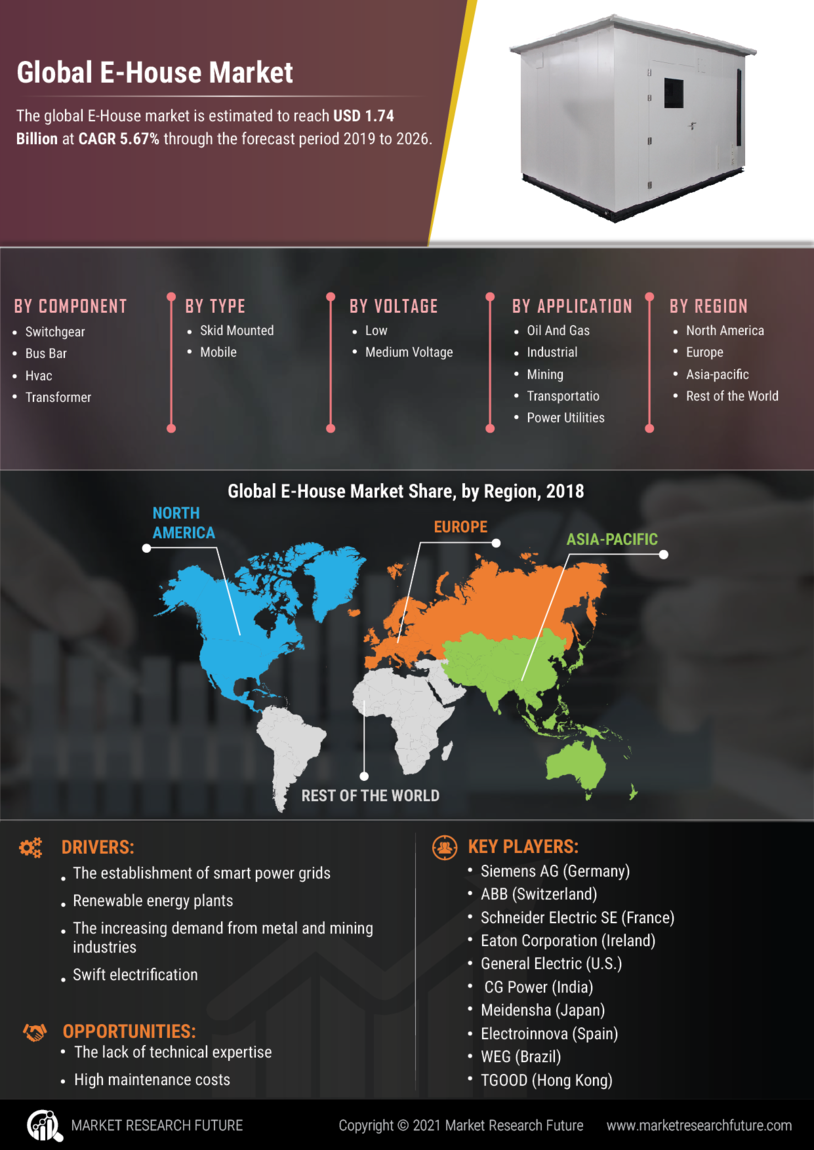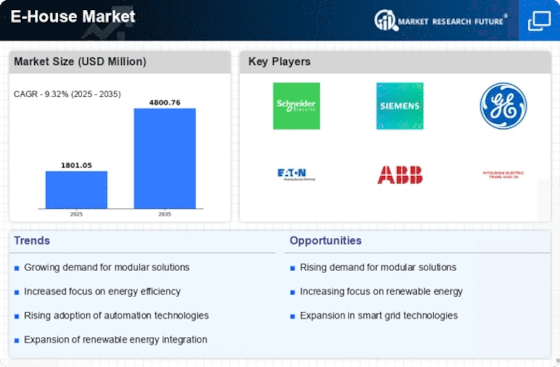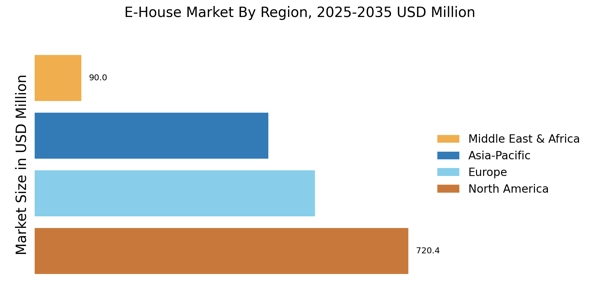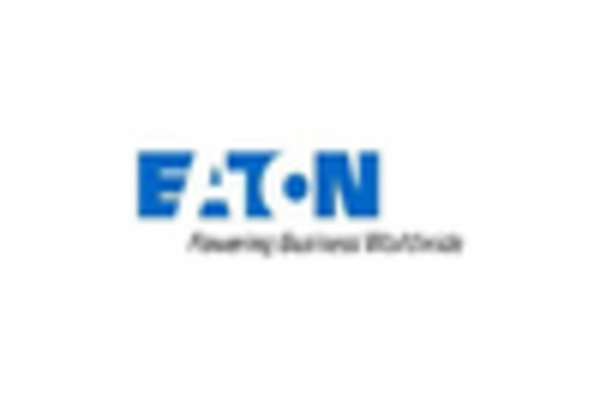Regulatory Support for Energy Efficiency
Regulatory frameworks promoting energy efficiency are playing a crucial role in shaping the E-House Market. Governments worldwide are implementing policies aimed at reducing carbon emissions and enhancing energy efficiency in power distribution. These regulations often encourage the adoption of modular solutions like E-Houses, which can be designed to meet stringent energy standards. The E-House Market stands to gain from incentives and subsidies provided by governments to promote energy-efficient technologies. As regulatory pressures increase, the demand for E-Houses that comply with these standards is expected to rise, further driving market growth.
Rising Demand for Renewable Energy Solutions
The E-House Market is experiencing a notable surge in demand for renewable energy solutions. As nations strive to meet their energy needs sustainably, the integration of renewable sources such as solar and wind power is becoming increasingly prevalent. This shift is driving the need for E-Houses, which serve as compact, modular substations that facilitate the efficient distribution of renewable energy. According to recent data, the renewable energy sector is projected to grow at a compound annual growth rate of over 8% in the coming years. Consequently, the E-House Market is poised to benefit from this trend, as these structures provide essential support for the infrastructure required to harness and distribute renewable energy effectively.
Technological Advancements in Power Distribution
Technological advancements are reshaping the E-House Market, particularly in power distribution systems. Innovations such as smart grid technology and automation are enhancing the efficiency and reliability of power delivery. E-Houses equipped with advanced monitoring and control systems can optimize energy usage and reduce operational costs. The integration of Internet of Things (IoT) devices within E-Houses allows for real-time data analysis and predictive maintenance, which can significantly improve performance. As the demand for smarter energy solutions rises, the E-House Market is likely to see increased adoption of these technologies, positioning it favorably for future growth.
Growing Interest in Modular Construction Solutions
The trend towards modular construction is gaining traction, significantly impacting the E-House Market. Modular construction offers numerous advantages, including reduced construction time, lower costs, and enhanced flexibility. E-Houses, being prefabricated units, align perfectly with this trend, allowing for rapid deployment in various settings. The construction industry is increasingly recognizing the benefits of modular solutions, with projections indicating a growth rate of over 6% in the modular construction sector. This growing interest is likely to bolster the E-House Market, as more companies seek efficient and adaptable solutions for their power distribution needs.
Increased Urbanization and Infrastructure Development
Urbanization continues to accelerate, leading to a significant increase in infrastructure development across various regions. The E-House Market is likely to thrive as urban centers expand and require efficient power distribution systems. E-Houses are particularly advantageous in urban settings, where space is limited, and rapid deployment is essential. The construction of smart cities and the modernization of existing infrastructure necessitate the use of E-Houses to ensure reliable power supply. Recent statistics indicate that urban areas are expected to house nearly 70% of the global population by 2050, further emphasizing the need for innovative solutions in the E-House Market to support this growth.
















